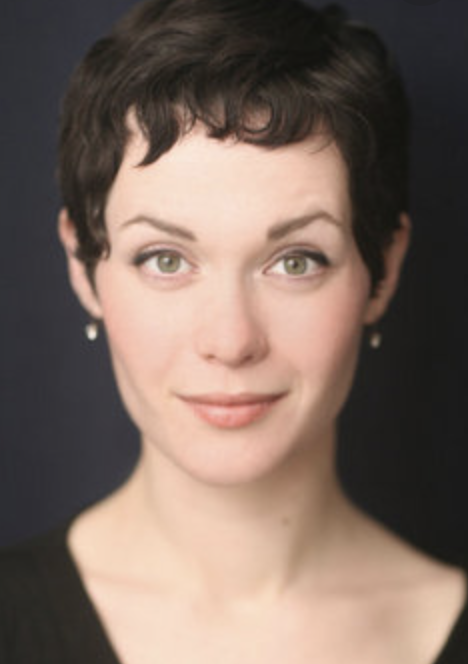|
Symphony
SRS SEASON ENDS WITH RESOUNDING TA-TA-TA-BANG
by Terry McNeill
Sunday, June 1, 2025
Symphony
YOUTHFUL VIRTUOSITY ON DISPLAY AT USO'S MAY CONCERTS
by Peter Lert
Saturday, May 17, 2025
Symphony
MYSTICAL PLANETS AND LIVELY GERSHWIN ORTIZ AT FINAL SRS CONCERT
by Peter Lert
Sunday, May 4, 2025
Symphony
VSO'S CONCERT MUSIC OF TIME, MUSIC OF PLACE
by Peter Lert
Sunday, April 27, 2025
Choral and Vocal
VOCAL ELEGANCE AND FIRE AT THE 222'S RECITAL APRIL 26
by Pamela Hicks Gailey
Saturday, April 26, 2025
CANTIAMO SONOMA SINGS AN INSPIRED GOOD FRIDAY MOZART REQUIEM CONCERT
by Pamela Hicks Gailey
Friday, April 18, 2025
DRAMATIC SHOSTAKOVICH SYMPHONY CLOSES PHILHARMONIC'S 25TH SEASON
by Terry McNeill
Sunday, April 13, 2025
LARGE COLLEGE OF MARIN AUDIENCE GREETS STOPHER ARTISTRY
by Terry McNeill
Saturday, April 5, 2025
Chamber
FRISSON DELIVERS SHIVERS OF DELIGHT
by Abby Wasserman
Sunday, March 30, 2025
OLD AND MOSTLY NEW IN SRS MARCH CONCERT IN WEILL
by Peter Lert
Saturday, March 22, 2025
|
 |
 Contralto Emily Marvosh |
PENULTIMATE VOM FESTIVAL CONCERT FEATURES GORGEOUS VOCALISM
by Pamela Hicks Gailey
Thursday, July 29, 2021
The 2021 Valley of the Moon Music Festival continued on July 29 with a sumptuous online offering of French songs, concluding with the second piano quartet by Fauré, Op. 45. Such a beautiful bouquet of video performances wonderfully filmed and recorded softened the disappointment of not being able to experience them in person.
Included in the program were seven well-known nineteenth century mélodies: "L'Absence" from Nuits d'été ("Summer Nights") by Berlioz, "À une fleur" ("To a Flower") by Bizet, "Fleur Déssèchée" ("Dried Flower") by Pauline Viardot, Fauré’s "Arpège" followed by Debussy's Chansons de Bilitis: "La Flûte de Pan" (The Flute of Pan"), "La Chevelure" ("Tresses"), and "Le Tombeau de Naïades" ("The Tomb of Naiads"). Sung with warmth of both voice and personality by contralto Emily Marvosh, and played charmingly and emotionally by pianist Eric Zivian, I especially enjoyed the Debussy for its dreamy and evocative piano part and the seductive, quietly conversational melodies of these odd and fantastical poems.
The first three songs were recorded with the Rausch fortepiano in the familiar music room, and the last four songs and the quartet were recorded on a curtained theater stage with a modern piano. For this performance I actually preferred the sound in the curtained venue than in the "Rausch" room, which was a bit too bouncy for the harmonically complex piano accompaniments.
Ms. Marvosh sings with a lovely, rich, and evenly produced contralto, which in these songs sounded appropriately lighter weight and more mezzo-ish than alto-ish. The combination of her natural dark color with a beautifully even and weightless spinning of tone is effortless. Her French is clear and easy to follow and she communicates intelligently and warmly, but a little more spice could be added to create more interest in the poetry. My only wish is that she had been off-book, which surely would have added that missing element. The necessity of glancing back and forth from the score robs her of the complete artistic experience I believe she is capable of, and also robs the audience of her considerable expressive gifts.
On this subject (since I have mentioned it in other reviews), it occurred to me that curiously it does not break focus at all when pianists and other instrumentalists are reading from a score during performance, but that it does indeed interfere when a singer is using notes, and I think it is partly because the singer is multitasking text and music simultaneously, an already complicated mental exercise, more so when the language is not one’s own.
Then there is the convention of classical recital singing, which involves the expectation of a focused gaze or even eye contact with the audience, and if a singer is using music, even if only as a prompt, then eye contact, and therefore communication, is constantly being broken to glance at the music.
If a singer can master the technique of never looking at the music in the middle of a phrase, and looking only during a rest, the breakage is minimized, rather like the theatrical skill of looking at the conductor without appearing to be looking at them. Ms. Marvosh used music on all her selections and dealt very well with the challenge, but her performance would have have been even more impressive had she been free from the printed page. This wonderful artist and her video audience deserve the complete experience.
Mr. Zivian is a stellar pianist and I feel like a broken record singing his praises once again. But sing them I must. His work on the songs, particularly the Debussy, was inspiring as expected, the dream playing every singer covets. His work on the G Minor Fauré quartet was astonishing and the ensemble were beyond superlative. Watching them commune with each other in the fiery Scherzo was both transporting and revelatory. Violinist Lisa Lee played with a combination of accurate intonation, passion and delicacy. Violist Liana Bérubé and cellist Tanya Tomkins were sonically perfectly matched, playing with gorgeous string tone, subtle dynamic contrasts and ensemble.
Of course Fauré's Quartet (1886) is beloved for its compactness and interwoven harmonies and interplay. The noble adagio is certainly one of the most beautiful in the repertoire, where the viola and cello have a chance to shine. This was a truly memorable performance.
|

